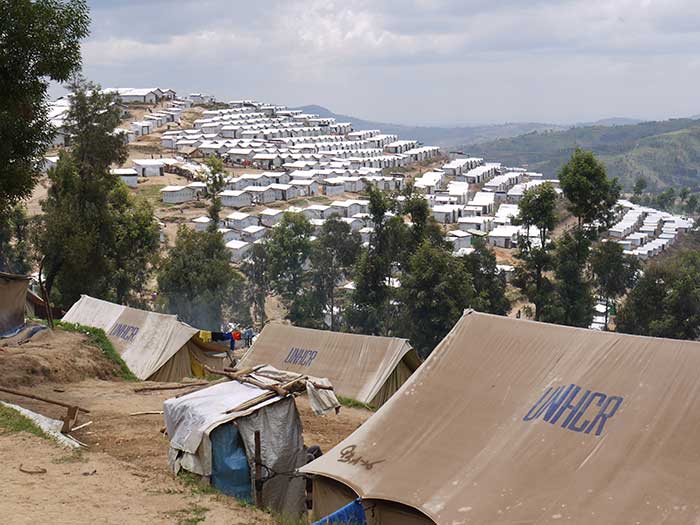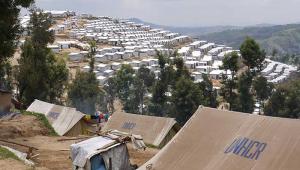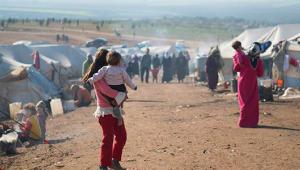web_oxfam_8097455453_5575c77457_o.jpg

A refugee camp in Rwanda. Credit: Oxfam
The study, conducted by researchers from the World Food Programme and the University of California, Davis, found that even refugees given food rations brought benefits for local economies, but this was significantly higher when aid was given in cash form.
J. Edward Taylor, lead author of the report and professor of agricultural and resource economics at UC Davis, said the research evidenced the “very real economic benefits from hosting refugee camps” especially when cash-based assistance is given.
“Each refugee generates real income for the surrounding community that is larger than the sum of the humanitarian assistance the refugee receives – and if the refugee is receiving cash, the impact of that assistance can nearly double.”
The study measured the local impact of food assistance provided by the WFP to Congolese refugees living in three camps in Rwanda.
In a camp called Kigeme, where refugees were receiving food parcels, researchers found that every dollar’s worth of food for refugees increased real income for the community around the camp by $1.20.
In two other camps, Gihembe and Nyabiheke, where refugees received cash transfers of between $120 and $126 each month respectively, every dollar received translated into $1.51-1.95 in the local economy.
Researchers said that each adult refugee in the camps increased real income in the local area by $204 in Gihembe and $253 in Nyabiheke, amounting to 63% and 96% increases on the average per capita income of Rwandan households nearby.
“When refugees receive a monthly ration of food supplies, they often sell part of it at below-market prices so they have a little cash to buy other goods in the market, like fresh fruit and vegetables,” explained Ernesto Gonzalez, a co-author of the study who works on cash-related assistance in the WFP’s bureau in Nairobi, Kenya.
“When refugees receive cash instead, it not only gives them more control and choice over what they eat, but also increases their purchasing power and therefore the strength of their contribution to the local economy.”
The study also found significant increases in trade within a 10-kilmotre radius of the camps. However, researchers noted that assistance for refugees had a varying impact over the three areas due to the different agricultural and market conditions in each.
Rwanda currently hosts more than 150,000 refugees in five camps across the country. The WFP said innovative cash-based transfers, which include physical cash, mobile money, SMS payments or food vouchers, allow a faster, more flexible response for refugees in Rwanda and elsewhere.
The UN agency’s executive director, Ertharin Cousin, added that the study was also vital because it demonstrates that refugees can also bring benefits to the communities and nations that host them.
“Too often, people talk about refugees as a burden or threat, but this study indicates that hosting refugees can economically benefit a community, and that assistance for refugees makes a concrete difference in people’s lives – including those who aren’t directly receiving that assistance.”













